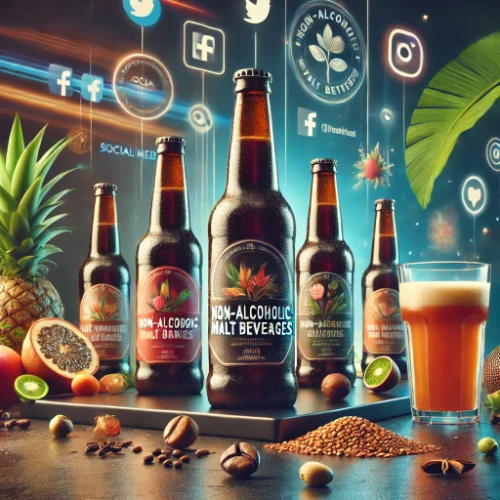Non-alcoholic malt sustainability is more than just a health-conscious choice—it’s a powerful force for promoting sustainable agriculture! As eco-friendly consumption becomes increasingly important, non-alcoholic malt production is rising to the occasion by supporting sustainable farming techniques that benefit both the planet and future generations.
Reducing Water Usage: A Key Element of Non-Alcoholic Malt Sustainability
One of the biggest environmental impacts comes from the cultivation of barley, the main ingredient in non-alcoholic malt. Modern malt producers are focusing on barley varieties that use less water, making non-alcoholic malt production an important player in water conservation efforts. By using less water, these crops contribute to sustainability while also combating drought conditions in agricultural regions.
Adopting water-saving practices aligns non-alcoholic malt production with global sustainability goals. You can read more about water-efficient barley farming at https://www.waterfootprint.org.
Supporting Soil Health with Crop Rotation
Sustainable farming and non-alcoholic malt go hand-in-hand, especially when it comes to promoting healthy soils. Many farmers rotate their barley crops with nitrogen-fixing plants like legumes, improving soil fertility without the need for harmful synthetic fertilizers. This practice, central to non-alcoholic malt sustainability, ensures that the land remains productive and biodiverse for generations to come.
Rotational cropping is crucial for sustainable agriculture, and non-alcoholic malt producers are actively contributing to this important practice. More on soil health can be found at https://www.fao.org/soils-portal.
Local Sourcing for a Greener Future
Non-alcoholic malt producers are also prioritizing local sourcing, which supports regional economies and reduces carbon emissions. By sourcing barley locally, transportation distances are minimized, lowering the carbon footprint and strengthening non-alcoholic malt sustainability efforts.
This approach doesn’t just help the environment—it also promotes stronger local agricultural communities. Non-alcoholic malt truly leads the charge in sustainable practices from farm to beverage.
The Future of Non-Alcoholic Malt Sustainability
As the demand for non-alcoholic malt grows, so does the industry’s commitment to sustainability. Producers are continuing to innovate, exploring drought-resistant barley strains, improving packaging, and refining farming practices. The result? A brighter, more sustainable future for non-alcoholic malt and agriculture alike.
Time to Raise a Glass to Sustainability!
Choosing non-alcoholic malt isn’t just great for your health—it’s also a way to support sustainable agriculture. With initiatives like water-efficient farming, soil preservation through crop rotation, and reduced carbon emissions via local sourcing, non-alcoholic malt sustainability is leading the way. So, next time you enjoy your favorite malt beverage, know that you’re contributing to a more sustainable future!
Suggested Related Links for Further Exploration
- Non-Alcoholic Malt Trends 2024: A Look at the Future
Explore the latest trends in non-alcoholic malt, including innovations in sustainability. - The Environmental Benefits of Local Sourcing
Learn how local sourcing reduces carbon emissions and supports regional economies. - Water-Efficient Farming in Non-Alcoholic Malt Production
Discover how modern farming techniques help conserve water and promote sustainability. - FAQs: Non-Alcoholic Malt and Sustainability
Find answers to your questions about how non-alcoholic malt supports sustainable agriculture.




